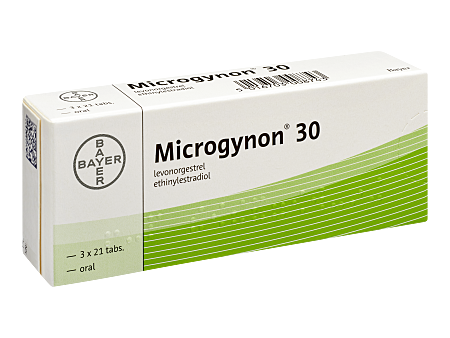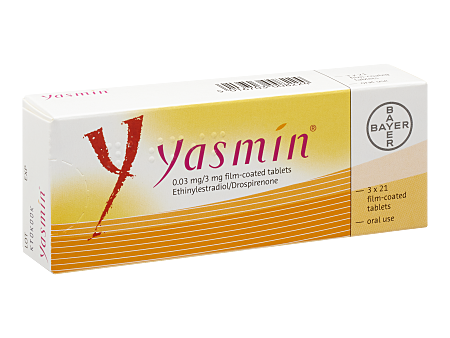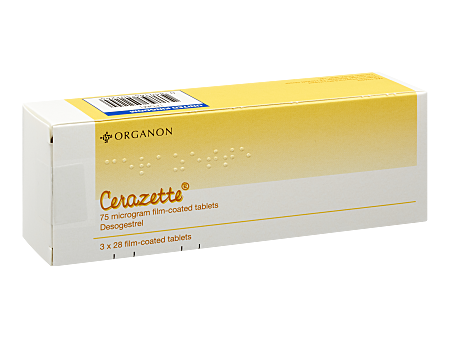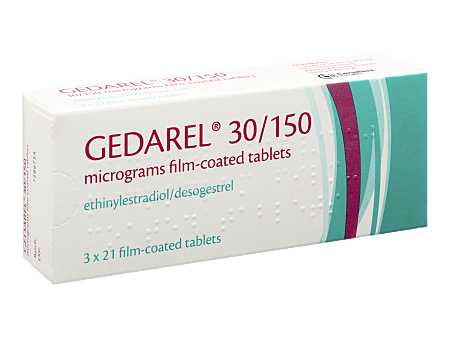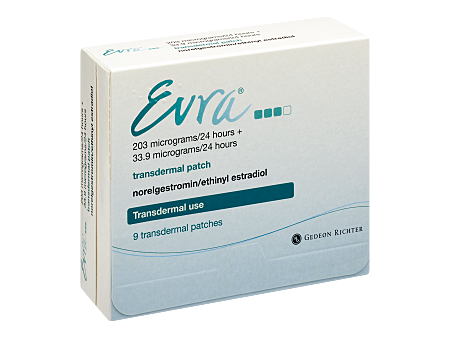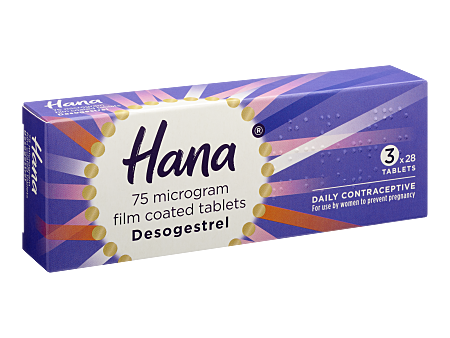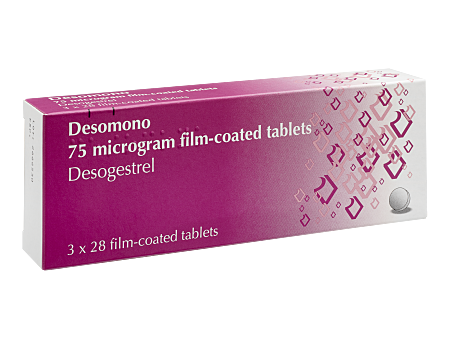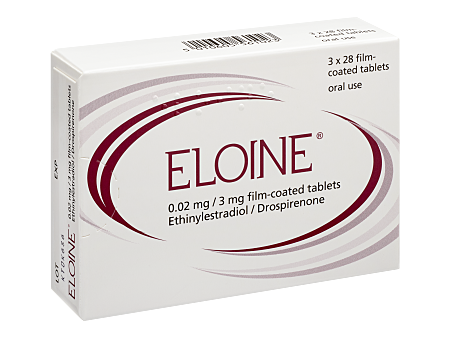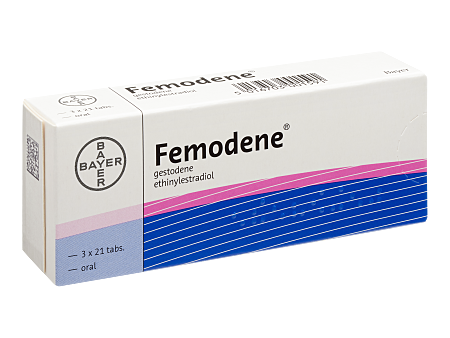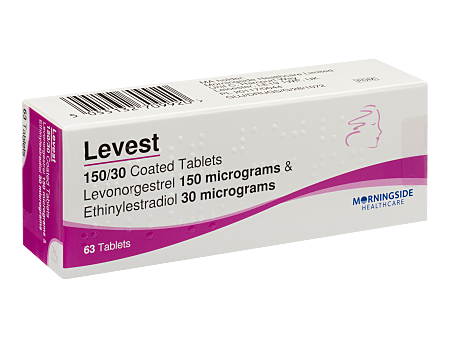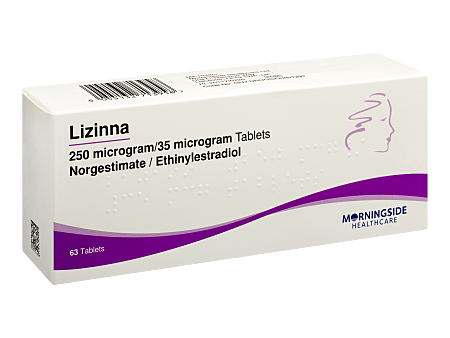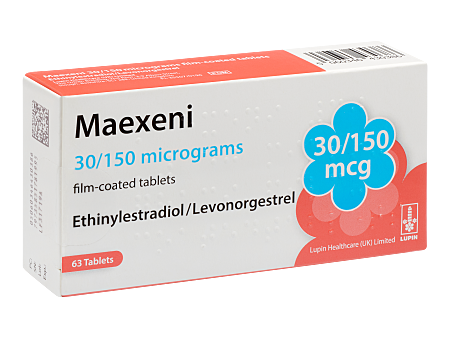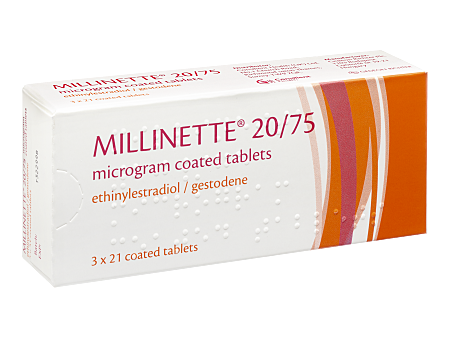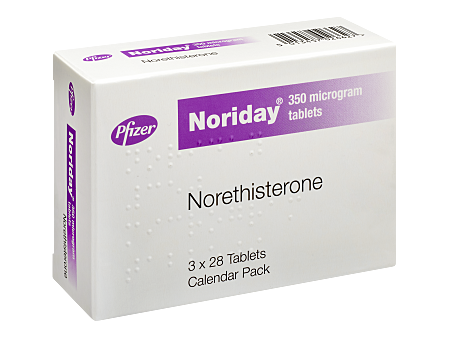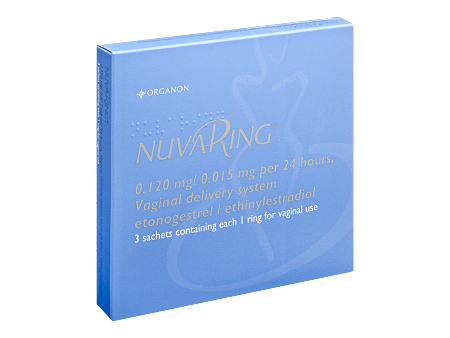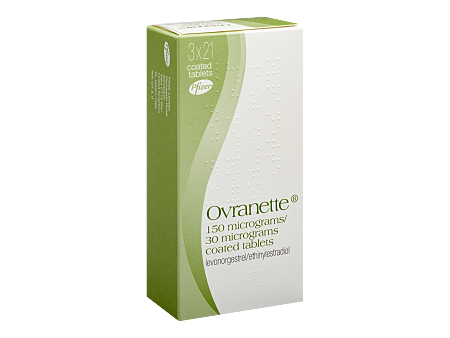Contraceptive Pill Brands
With so many different contraceptive pill brands on the market, it can be difficult to decide on the right one. Let's take a look at what types of contraceptive pills there are, how they work, some advantages and disadvantages of each, and which one may be right for you.

What Types of Contraceptive Pills Are There?
There are several types of contraceptive pill available in the UK. The main differences between them include the type and amount of hormones they contain, how they work and how you take them.
Different types of contraceptive pill include:
- the combined pill, which contains oestrogen and progestogen
- the mini pill, which contains only progestogen
- monophasic pills, which contain the same amounts of hormones in each pill
- multiphasic pills, which contain different amounts of hormones that are taken on different days
- low-dose pills, which contain less oestrogen than other types of pill
Combined Pill Brands
Combined pills contain synthetic versions of the female sex hormones oestrogen and progesterone. They help to prevent pregnancy in 3 ways by:
- stopping your ovaries from releasing an egg every month
- thickening the mucus at the entrance to the womb to make it more difficult for sperm to enter
- making the lining of the womb thinner and more difficult for an embryo (fertilised egg) to implant
Advantages of the combined pill include:
- it is 99% effective when taken correctly
- it may help with symptoms of premenstrual syndrome (PMS), heavy or painful periods, and endometriosis
- it reduces your risk of some cancers like colon, ovarian, and womb cancer
- it can protect against pelvic inflammatory disease (PID)
- it can help with acne
- it may reduce the risk of non-cancerous breast disease, ovarian cysts, and fibroids
- it doesn’t interrupt sex
- you can use it to delay your periods as well as using it for contraception
Disadvantages of the combined pill include:
- it may cause side effects like mood swings, nausea, headaches, breakthrough bleeding or spotting, and breast tenderness. These normally go away after a few months, but if they continue or get worse, talk to your doctor about trying a different pill
- you need to remember to take it at around the same time every day
- it may not work properly if you vomit, have diarrhoea, or are taking some medications like certain antibiotics
- it does not protect against sexually transmitted infections (STIs)
- it can slightly increase your risk of blood clots and breast cancer
- it may increase your blood pressure
- it may not be suitable for you if you are over 35 and smoke, are overweight, or have a history of blood clots
- it may not be suitable for you if you have a history of migraines with aura
Combined contraceptive pills normally contain a synthetic (manufactured) oestrogen called ethinylestradiol, but some contain other synthetic oestrogens such as mestranol or oestradiol.
Combined pills also contain a synthetic progesterone such as desogestrel, gestodene, drospirenone, levonorgestrel, norgestimate, norethisterone, nomegestrol or dienogest.
Different combined pills contain different amounts of these hormones, so some brands may work better for you and cause fewer side effects than others.
Combined contraceptive pills available in the UK include:
View Contraceptive Pill Treatments
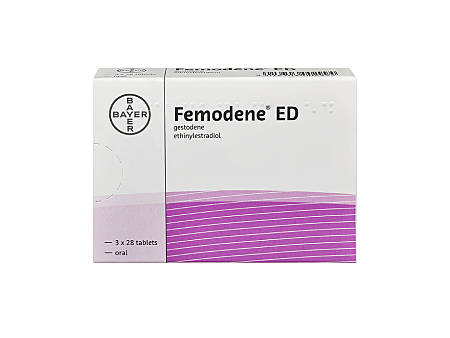
Femodene taken every day without a pill-free break
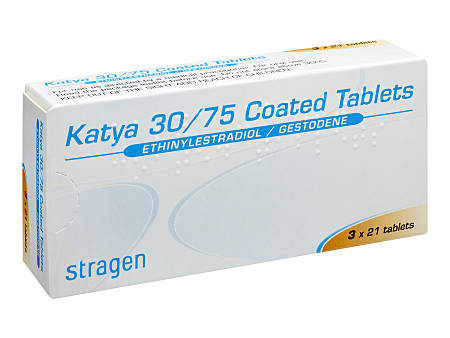
A good option for heavy, painful or irregular periods
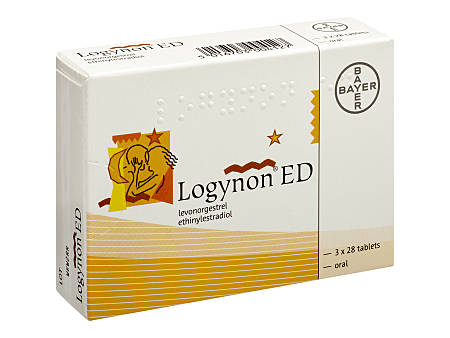
Logynon taken every day without a pill-free break
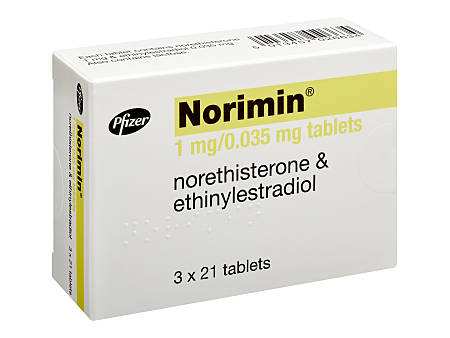
Can lead to lighter and less painful periods

Can improve period-related problems
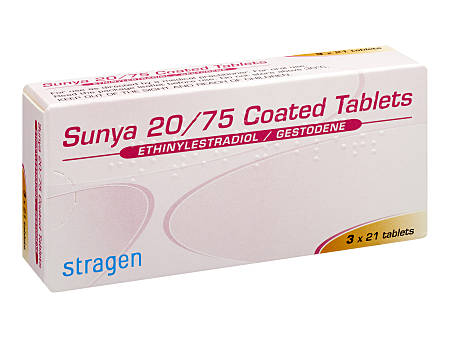
A combined pill with fewer oestrogen-related side effects
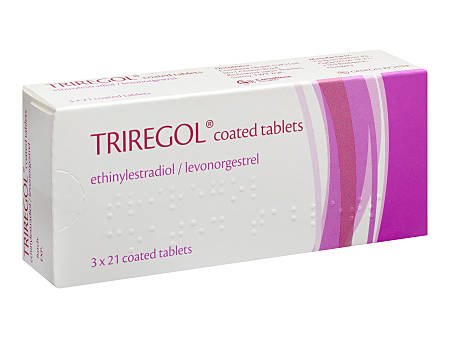
A triphasic combined contraceptive pill

Get advice from a doctor on picking a pill

Please check your spelling or try another treatment name.
Mini Pill Brands
The progesterone-only pill, commonly known as the mini pill contains progesterone, but no oestrogen. It works in a similar way to the combined pill but some types of mini pill may be less effective in preventing ovulation (the release of an egg from your fallopian tubes). You need to take the mini pill at the same time every day with no break between packs.
There are 2 types of progestogen-only pill:
- The 3-hour progestogen-only pill contains synthetic progestogen ( levonorgestrel or norethisterone). It needs to be taken at the same time every day, within a 3 hour window in case you forget to take it at the right time.
- The 12-hour progestogen-only pill contains synthetic progestogen and desogestrel. It needs to be taken at the same time every day, within a 12 hour window in case you forget to take it at the right time.
Advantages of the mini pill include:
- it is around 99% effective when taken correctly
- you can safely take the mini pill if you can’t take oestrogen (eg if you’re at higher risk of blood clots)
- it doesn’t interrupt sex
- you can take it while breastfeeding
- you can take it until you are 55 years of age
Disadvantages of the mini pill include:
- you need to take it at the same time every day for it to be effective.
- you may experience changes to your periods while taking the mini pill including lighter, infrequent, or absent periods, or spotting between periods
- it does not protect you from sexually transmitted infections (STIs)
- some medications such as certain antibiotics can make it less effectiveit may cause side effects like mood changes, breast pain or breast enlargement, changes to your libido (sex drive), headache, nausea, vomiting, and acne.
Side effects usually resolve by themselves after a few months, but if your side effects are getting worse, or not going away, talk to your GP about trying a different pill.
Progestogen-only pills available in the UK include:
Monophasic Pill Brands
Monophasic 21-day pills are the most common type of combined pill. Each pill contains the same amounts of hormones. You take this pill at the same time every day for 21 days followed by a 7 day break during which you have a bleed like a period called a “withdrawal bleed.”
When the 7 days are finished you should start your next pack of pills whether you are still bleeding or not.
21-day monophasic pill brands in the UK include:
28-day monophasic pills also contain the same amounts of hormones, but you take one every day. The first 21 pills contain synthetic hormones, and the last 7 pills are a placebo (hormone-free pill). This type of pill may be easier if you prefer to take a pill every day without a break so you don’t forget when to stop and start. You will have your withdrawal bleed while you are taking the placebo pills.
28-day monophasic pill brands in the UK include:
Multiphasic Pill Brands
Multiphasic pills contain different amounts of hormones. They’re thought to mimic the way your own hormones would fluctuate and change during your cycle. There are normally 2 to 4 sections in a pack containing different colour pills. The pills need to be taken in the correct order. Multiphasic pills are available in packs of 21 and 28 pills. The 21-day multiphasic pills are taken once a day at around the same time followed by a break of 7 days. The 28-day multiphasic pills are taken every day, but the last 7 pills are placebo and do not contain any hormones.
There are 3 types of multiphasic pills.
- Biphasic pills change the level of progestogen about halfway through the cycle. The levels of oestrogen stay the same.
- Triphasic pills change the levels of progestogen, and sometimes oestrogen 3 times during the cycle (approximately every 7 days).
- Quadriphasic pills change the dose of hormones 4 times during a cycle.
Multiphasic pill brands available in the UK include:
Low Dose Pill Brands
A low-dose pill is a combined contraceptive pill that contains lower amounts (20mcg or less) of oestrogen. Most combined contraceptive pills contain 30 to 35 mcg of oestrogen, and the highest available dose today is 50mcg.
Oestrogen can increase the risk of blood clots and stroke, so by taking a contraceptive pill with less oestrogen, this risk may be reduced. Taking a low-dose pill can also help reduce side effects like headaches, nausea, and breast tenderness.
Are low-dose pills effective?
- When taken correctly low dose pills are as effective as those containing higher amounts of oestrogen.
Advantages of low-dose pills include:
- they may be a good option for women who experience nausea and vomiting with higher-dose pills
- they may reduce the risk of oestrogen-related health issues like blood clots
- they may be a good choice for older women as low doses of oestrogen can reduce the risk of heart disease and stroke that increases as we age
Disadvantages of low-dose pills include:
- they may cause breakthrough bleeding in some women.
Low-dose pill brands available in the UK include:
Which Contraceptive Pill Brand is Right for Me?
The right contraceptive pill can give you freedom from the worry of unwanted pregnancy, control of your fertility, and relief from conditions like acne and premenstrual syndrome (PMS). But finding the right pill for you can be tricky. Every woman responds to the pill differently and what works great for your best friend may be a disaster for you. It`s often a case of trying a few brands before you find the one that suits you best.
For advice on contraception, and to discuss which pill may be a good fit for you, speak to one of our Superdrug online doctors through our Contraceptive Pill Advice service.
Sources
- Combined pill. Your contraception guide NHS July 1st, 2020 [Accessed August 16th, 2022)]
- The progestogen-only pill. Your contraception guide NHS February 2nd, 2021 [Accessed August 16th, 2022)]
- BNF> Contraceptives, hormonal National Institute for Health and Care Excellence [Accessed August 16th, 2022)]
- Biphasic versus triphasic oral contraceptives for contraception Pubmed July 2006 [Accessed August 16th, 2022)]
- Progestogen-only Contraceptive Pill Patient August 31st, 2021 [Accessed August 16th, 2022)]
- The Creeping Pearl: Why Has the Rate of Contraceptive Failure Increased in Clinical Trials of Combined Hormonal Contraceptive Pills? Pubmed November 1st, 2014 [Accessed August 16th, 2022)]

